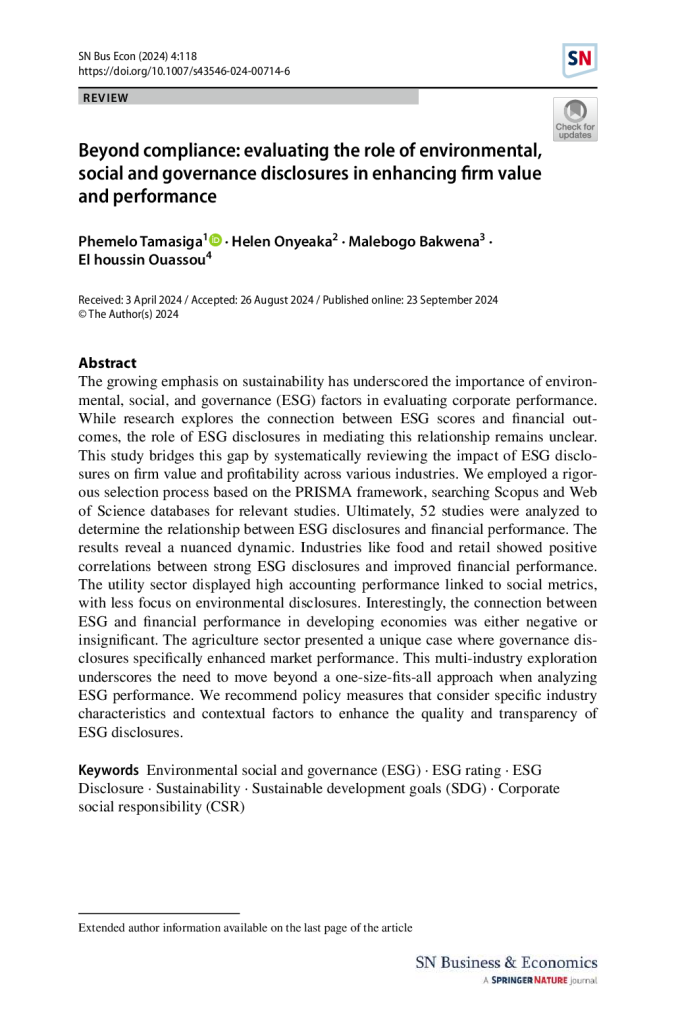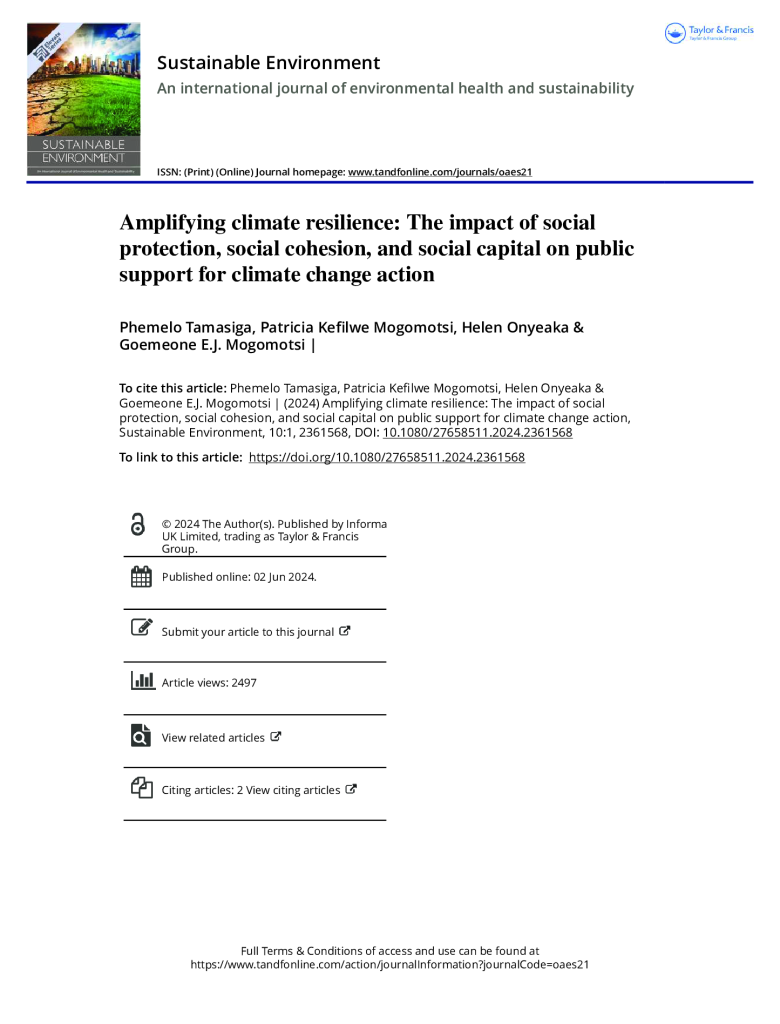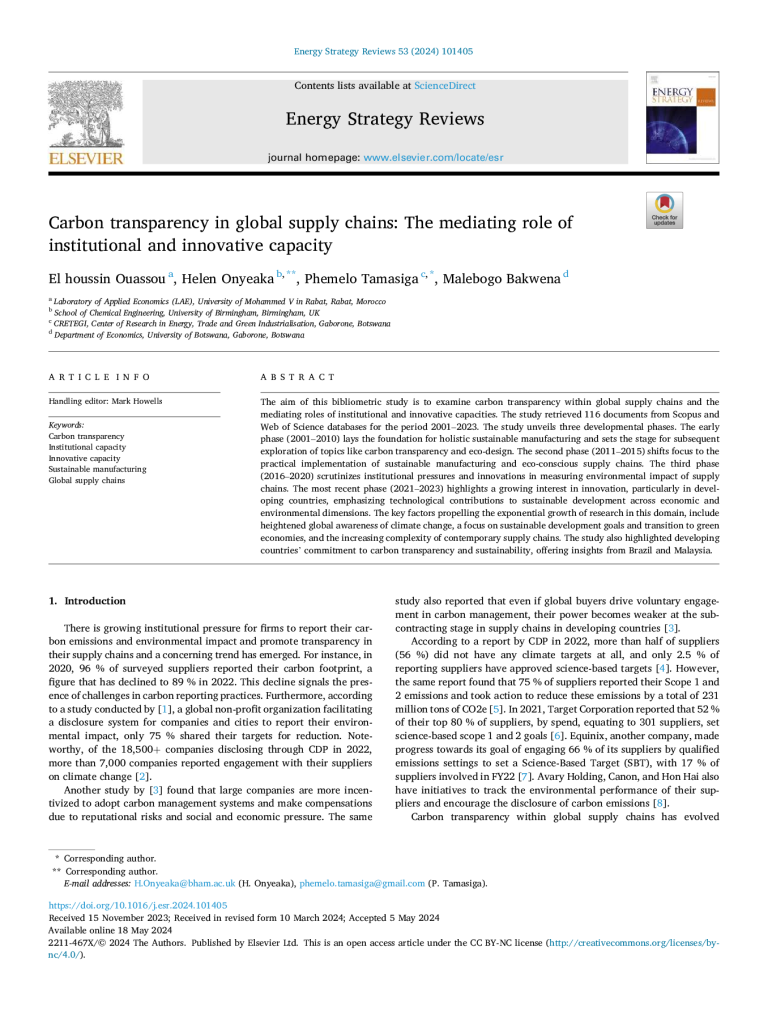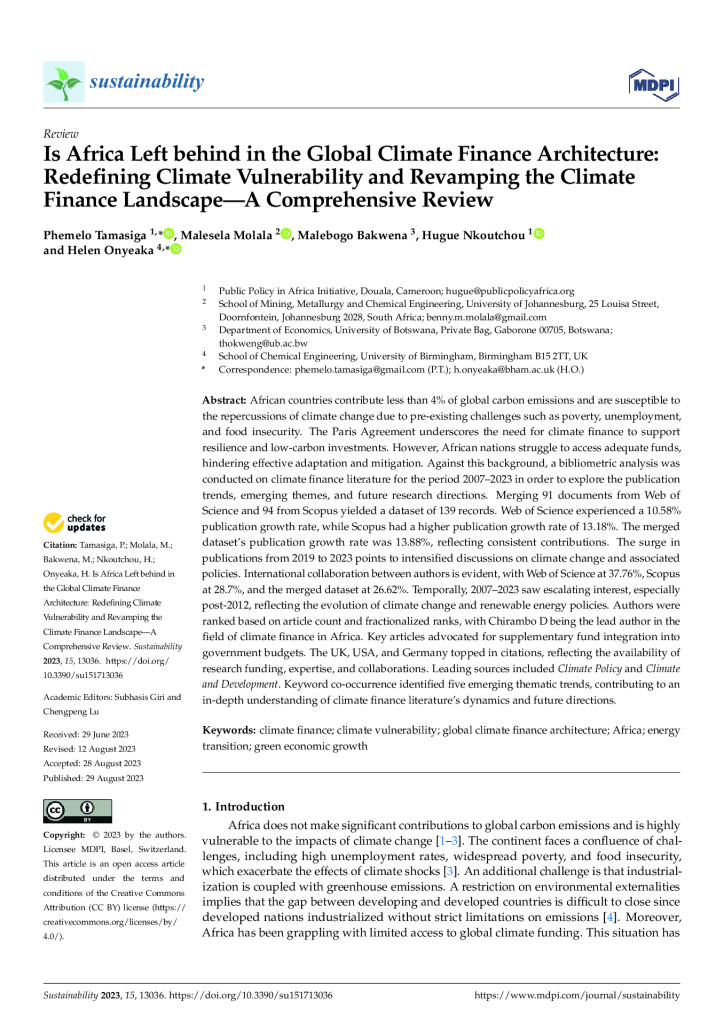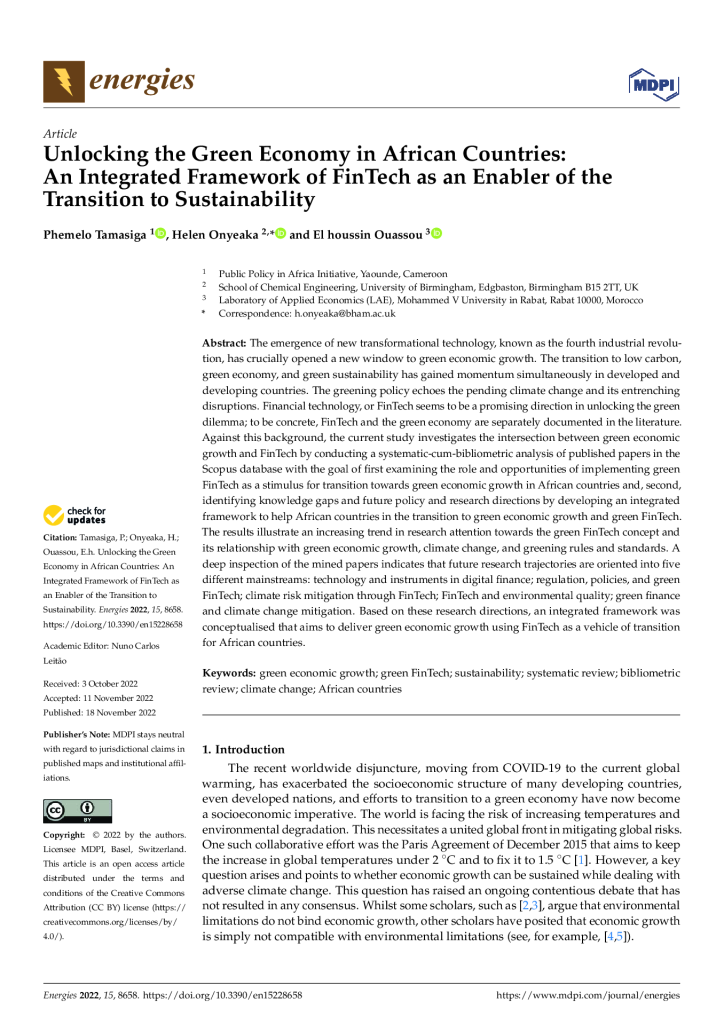Beyond compliance: evaluating the role of environmental, social and governance disclosures in enhancing firm value and performance
This study investigates the impact of ESG (environmental, social, and governance) disclosures on firm value and profitability across industries. Using the PRISMA framework, 52 studies from Scopus and Web of Science were analyzed. Results show varied outcomes: food and retail sectors benefit from strong ESG disclosures, while utilities focus more on social metrics. Developing economies often show negative or insignificant ESG-financial performance links, and agriculture benefits from governance disclosures. The findings highlight the need for industry-specific ESG approaches and policies to improve disclosure quality and transparency.
